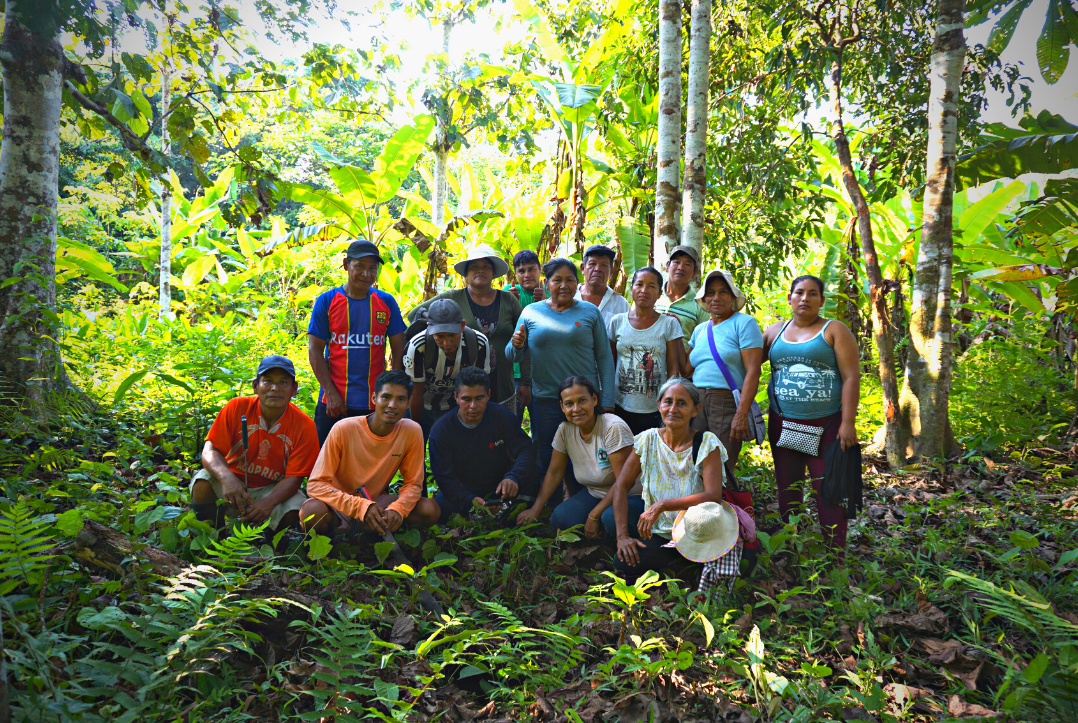Since 2012 we have been researching and recovering regenerative and healthy production methods and harmonious ways to interact with the environment that were lost with the arrival of current models of industrial development. Learning from ancestral forest farming practices of Amazonian communities, coupled with our own permaculture research, we then share, discuss and apply the findings to promote sustainable alternatives to the widespread practice of soil-depleting monocultures. We suggest practical and ecological community solutions that we develop and experiment with in our Permaculture Program to the Amazonian communities we work with, mutually increasing our knowledge.
In this context, a group of Kukama and Shawi representatives participated in our 5-day workshop “Introduction to Permaculture and Amazonian Agroforestry” in mid-august, as a preparation to install their own “chacras integrales” - diverse and productive agroforestry systems - in their communities. In early September, our team travelled to the Kukama community of Tangarana, located on the banks of the Marañon River, to support the community in installing their own chacra integral agroforestry system, based on their own agricultural knowledge and techniques they learned at our 5-day workshop.
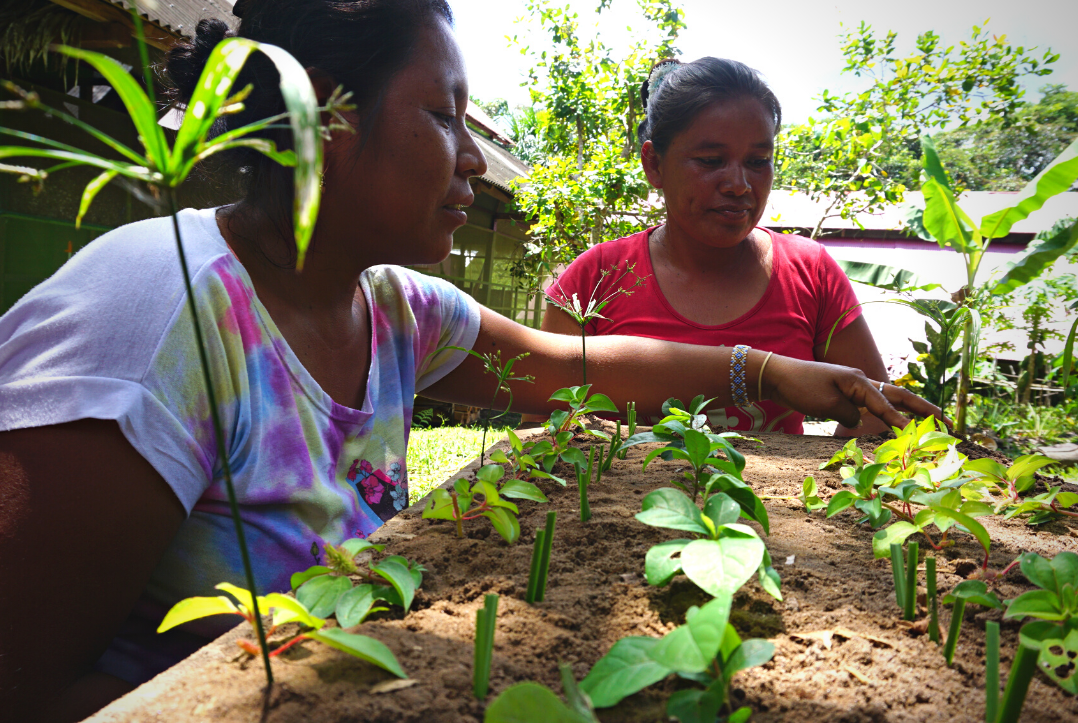
Accompanied by our team, the Tangarana community worked collectively during 5 days. First up was the selection of the ideal plot of land for the “chacra”. Together, we then prepared the land and selected the timber trees, fruit trees and medicinal plants that would be prepared and planted: mahogany, cedar, ungurahuis, ayahuasca, copaibas, cacao, copoazús, guanábanas, lemons, were some of the species chosen by the villagers. These different crops have different growth and production cycles, bearing fruit at different times of the year, maximizes production and generating harvests throughout the year, as well as over the years.
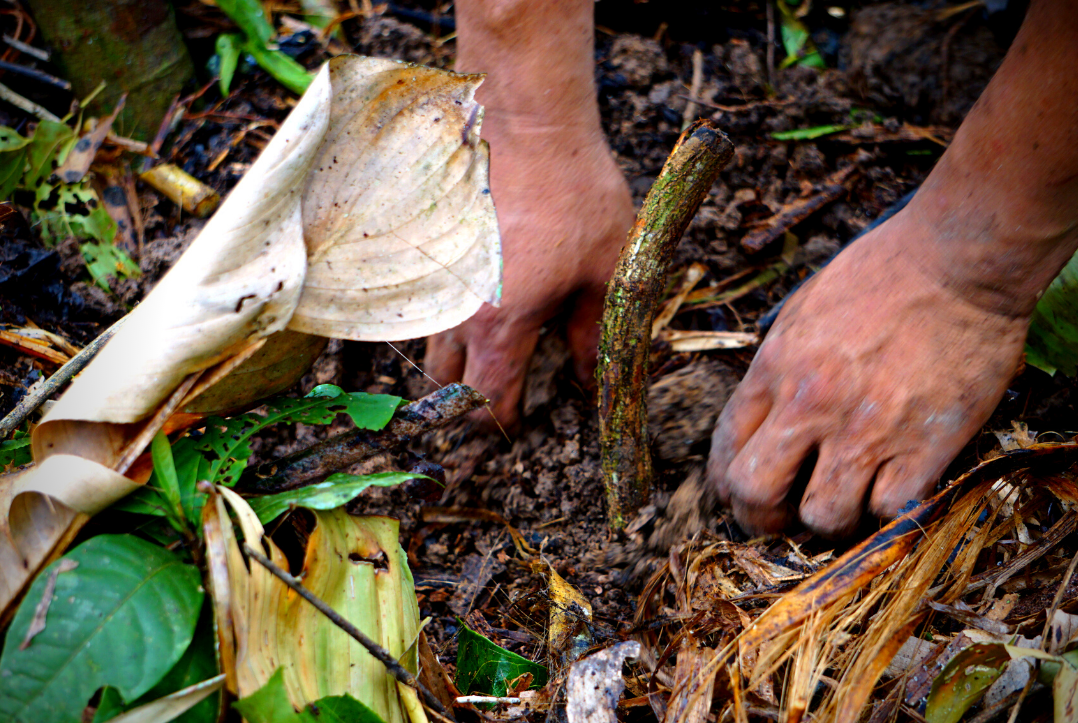
Our diverse agroforestry system furthermore advocates no burning of the cut vegetation and offers a real alternative to monocultures and the common slash-and-burn practice that is widespread in the Amazon. Also, the selection and preservation of existing plants makes it possible to take advantage of the resources already present in the forest. For Segundo Reátegui, president of the Tangarana community, this is an important change. "Well, here traditionally we have the custom that when you make a “chacra”, whether it is for plantain, yucca or corn, you cut down all the trees. It doesn’t matter if it’s a timber tree, you still cut it down. But now I see a difference, in the chacra that we are doing we don't cut the guava trees, for example. Formerly, when you made a chacra, you cut everything down until it was clean. And here I see that, and that is true… when I say that one must become conscious because, for example, sacha jergón is a medicine. If we had thought of it before, we would have a lot of it in our chakra now, right? But when we installed a chakra we cut it, so when you need medicine, you don't have it anymore".
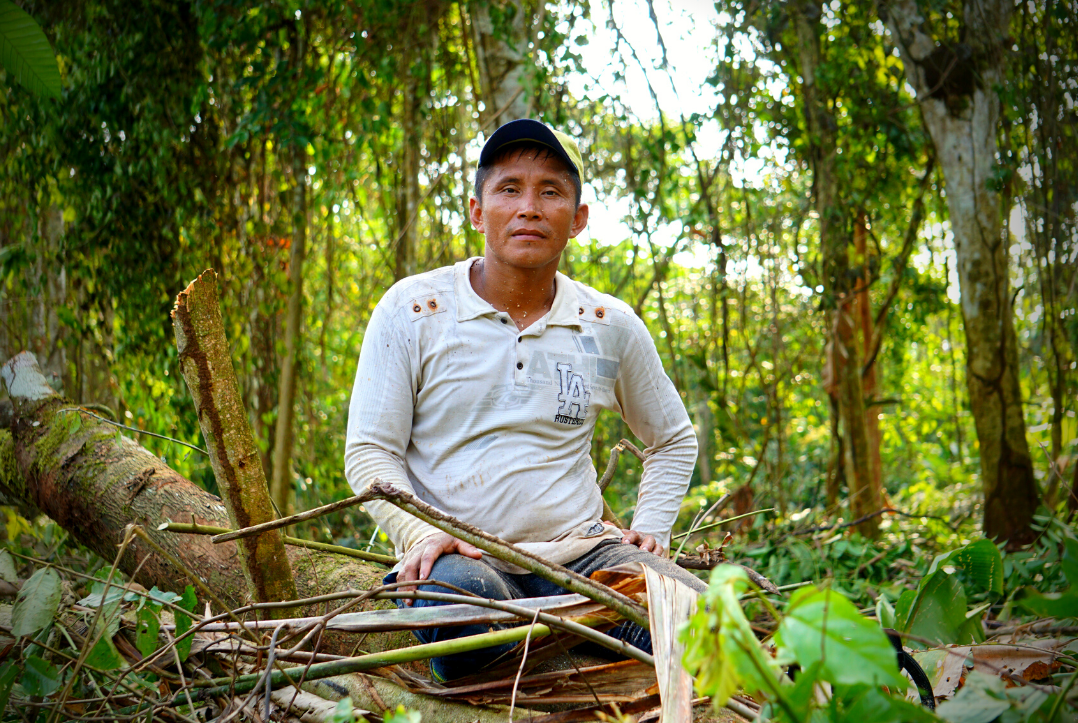
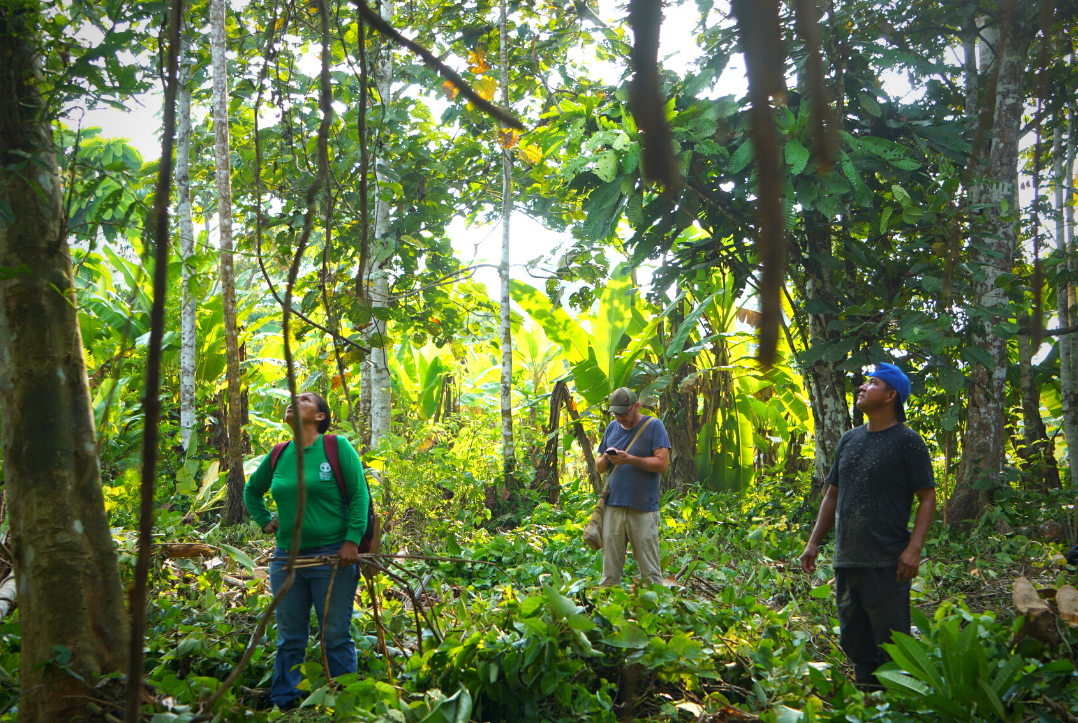
Inspired by permaculture, which in general is inspired by ancestral traditions and sustainable ways of life from all around the world, “chacras integrales” respect the balance of all forms of life present in nature, trying to mimic the natural systems of a tropical forest. Within this line of thought, promoting the care of native bees is important. As pollinators bees contribute to the natural recovery of the forest and increase crop productivity. Honey production also generates additional economic income for families and is used as medicine. At the Chaikuni Institute we produce honey with native stingless bees and regularly hold capacity building workshops for local communities.
Segundo continues and confirms that bees are a necessary resource that they are going to start taking care of, "because here, when you find a hive nest in the forest, you cut down the tree and take the honey. The bees die and there are only few left. You just take their honey, but you don't know that you are harming yourself because that bee is going to move to another place. It changes my way of thinking because now that I have that nest, I must take care of it because tomorrow I will need it too”.
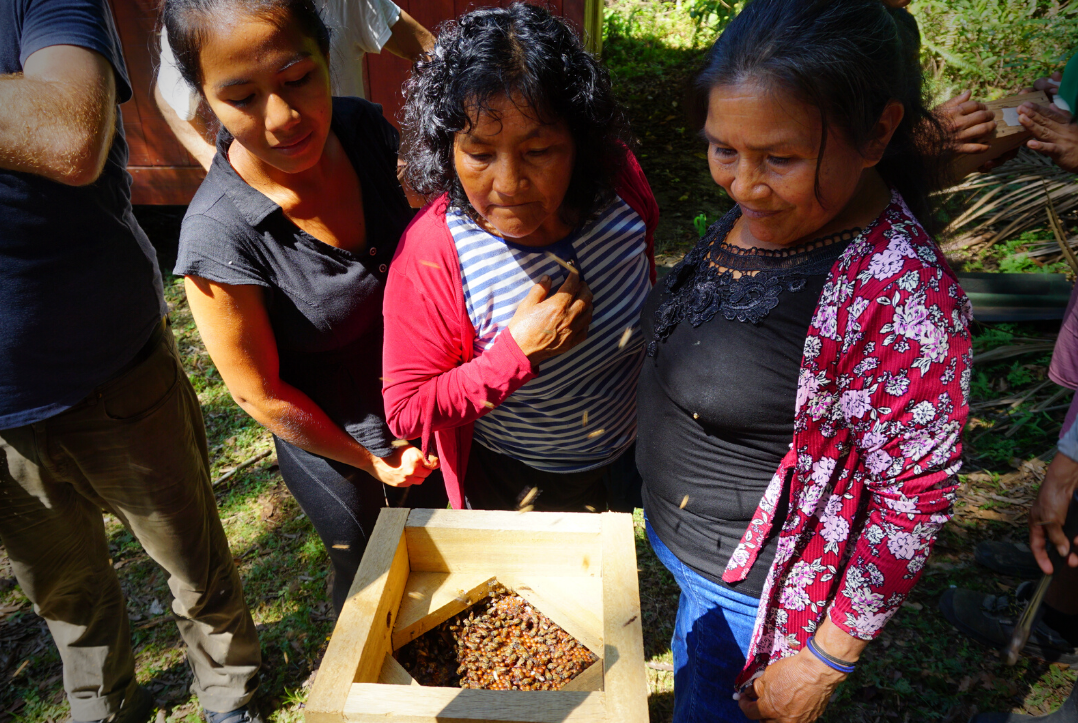
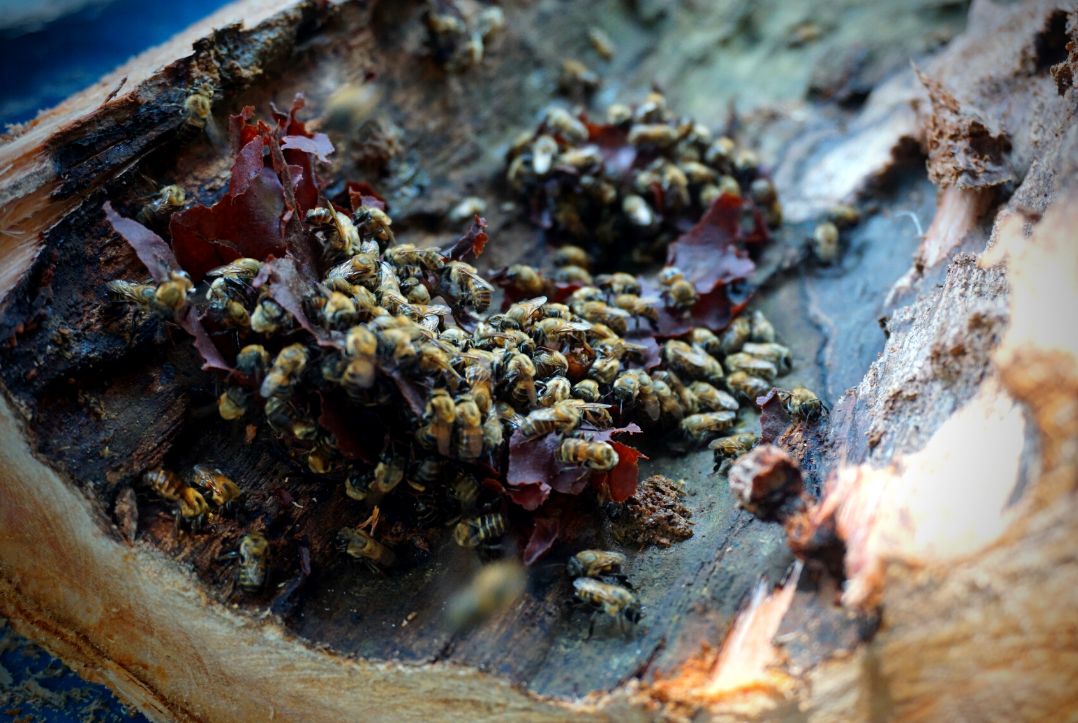
The Kukama people, like many other indigenous peoples, have suffered the loss of many aspects of their ways of life and traditional knowledge as a result of globalization and extractivism. In response to this reality, recovering and promoting sustainable indigenous production systems and agricultural practices is becoming increasingly urgent to foster a shift to more healthy and sustainable models of interacting with the environment which also strengthen food sovereignty and lead to increased financial means for local families.
We hope that this first experience in Tangarana is only the beginning of our collaboration with Kukama communities belonging to Huaynakana Kamatahuara Kana, our partner organization entirely led by indigenous Kukama women, as we remain committed to working with local communities to create a movement to regenerate and protect the Amazon.
